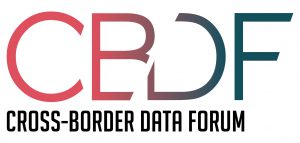This post provides a link to a chapter of the book “Surveillance and Privacy in the Digital Age: European, Transatlantic, and Global Perspectives” (Bloomsbury Publishing, 2021), edited by Valsamis Mitsilegas and Niovi Vavoula, and is provided here with the permission of the publisher.
Cloud computing has revolutionized the ways in which individuals, companies and governments operate in the twenty-first century. Such progress however can also beget more sophisticated mechanisms for coordinating and executing criminal acts. When evidence sought by one government is stored on a server in another country with a different data privacy regime, how can these conflicting interests be reconciled? What are the responsibilities of service providers when such transfers are concerned?
In The Commission’s E-Evidence Initiative: Harmonising EU Rules on Access to Electronic Evidence, Lani Cossette addresses these challenges in the context of the European Commission’s e-evidence initiative, including the role this initiative will play in setting a workable standard for navigating these complex interactions in other fora.
Cossette analyzes the e-evidence initiative and proposes five areas for further amendment: (i) stronger rights of notice for people targeted by orders; (ii) meaningful notice to affected Member States; (iii) requirement to use EU measures in cross-border cases; (iv) empowering service providers to challenge overbroad or otherwise inappropriate orders; and (v) a mechanism to resolve conflicts with third-country laws.
Cossette concludes that ensuring that these rules fully respect fundamental rights and do not force providers to violate the laws of third countries are goals that everyone should support. The Commission’s e-evidence initiative provides a unique opportunity for EU policymakers to achieve these goals in ways that are workable, preserve important European values and provide a model for the rest of the world.
Read the full chapter here.
Lani Cossette is Senior Director and Chief of Staff for Microsoft’s newly launched UN Affairs team in New York. The team covers a range of issues from environmental sustainability and skilling and education to cyber issues, the digital divide, and human rights. Previously, Lani led Microsoft’s engagement on internet jurisdiction and cross border issues in Brussels for the European Government Affairs team. In 2014-15, Lani was an inaugural fellow at the Data & Society Research Institute in New York. Lani has a B.S. in International Economics from the School of Foreign Service at Georgetown University and a J.D. from George Washington University Law School.
These statements are attributable only to the author, and their publication here does not necessarily reflect the view of the Cross-Border Data Forum or any participating individuals or organizations.

